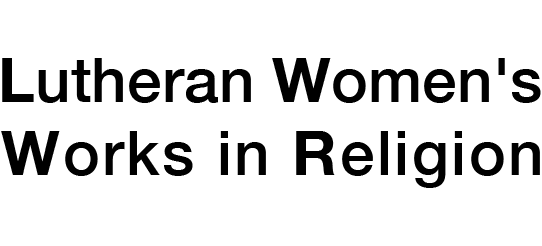Bibliography Author: Brenda Llewellyn Ihssen
CHURCH HISTORY AND HISTORICAL THEOLOGY
Brenda Llewellyn Ihssen "That which has been wrung from tears: Usury, the Greek Patristics and Catholic Social Teaching" In Reading Patristic Social Ethics: Issues and Challenges for 21st Century Christian Social Thought. eds. Johan Leemans, Brian Matz and Johan Verstraeten. Washington D.C.: Catholic University Press 2010Having brought together an international collection of patristic scholars and ethicists at the Katholieke Universiteit Leuven, editors Leemans, Matz and Verstraeten present in this collection peer reviewed essays written and presented at the 2007 Expert Seminary on Reading Patristic Social Ethics.
CHURCH HISTORY AND HISTORICAL THEOLOGY
Brenda Llewellyn Ihssen "Usury" In A Compendium of Patristic Writings on Social Justice and the Common Good. ed. Brian Matz. Washington D.C.: Catholic University Press 2011This compendium is a collection of select patristic writings that address issues of social justice, issues of concern for both the ancient and modern world, including: slavery, abuse, health and usury, to name a few. Each chapter includes a written explanation of the importance of the issue during the time of the patristics, and explains how they worked with issues of social justice within their sermons and theologies. Further, each chapter includes an annotated bibliography of both primary and secondary source material on each topic. Finally, each chapter concludes with select translated passages on each topic.
CHURCH HISTORY AND HISTORICAL THEOLOGY
Brenda Llewellyn Ihssen They Who Give From Evil; the Response of the Eastern Church to Money-lending in the Early Christian Era., Wipf and Stock, K.C. Hansen Eugene: Wipf & Stock 1997In addition to a historiography of usury scholarship, explanation of the economic and historical contexts of early Christian writings on usury and biblical and philosophical attitudes regarding usury and lending, this monograph considers the financial and salvific implications of usury in select sermons of fourth century Greek authors Basil the Great and his younger brother Gregory of Nyssa.
BIBLICAL STUDIES
Brenda Llewellyn Ihssen Philippians., ed. Scott Tunseth. 2010: (Augsburg FortressThis is an adult, devotional study on Paul‘s Letter to the Philippians that reflects on four paradoxes that reside within the text (Joyful Sorrow, Individual Community, Masterful Slave, Downward Ascent). Each chapter opens with a contemporary story that connects the reader with the theme of the chapter, and each chapter connects with the one it follows. Using insights from current theological and social-scientific methods to explore Paul‘s letters, as well as issues as contemporary as economic concerns, Hurricane Katrina and the 2008 Presidential race, the authors guide the reader from Paul‘s historical situation to their present reality.
BIBLICAL STUDIES
Brenda Llewellyn Ihssen Philippians Learner Guide, Philippians Leader Guide: Books of Faith Bible Study Series., Minneapolis: Augsburg Fortress 2010This 4-session Bible study uses four paradoxes as lenses to look at Paul’s letter.
CHURCH HISTORY AND HISTORICAL THEOLOGY
Brenda Llewellyn Ihssen "Smashing God‘s Face: Art, Theology and Violence in the Byzantine Empire" 21.1 In ARTS: The Arts in Religious and Theological Studies. 2009This essay explores ways in which sources might demonstrate closer congruence than has previously been considered of the infamous iconoclast Emperor Leo and the theology of the iconoclasts to the iconodule position. Hagiographic, historical and legal sources are consulted to consider the context within which Leo‘s position will emerge; second, through analysis of select theological documents of both iconoclasts and iconodules—texts roughly contemporary with Leo‘s actions against icons—this essay addresses how structures held as ‗iconic‘ by the iconoclasts are understood within the theology of the iconodules in a manner similar to the iconoclasts, and concludes with a call for a reconsideration of the iconoclastic and heresiarch titles which Leo has borne, in addition to that of “emperor.”
CHURCH HISTORY AND HISTORICAL THEOLOGY
Brenda Llewellyn Ihssen "Strip the Rich Right Down to their Shirts: St. John the Almsgiver and the Transformation of the City" In Ekklesiastikos Pharos. 2009This article considers the two ―Lives‖ of St. John the Almsgiver, a seventh-century Patriarch of Alexandria. Unlike the average life of a saint, St. John‘s two biographies are alarmingly tame, and normal elements of such literature—miracles, ascetic works, divine visions—are conspicuously absent. But careful attention to the largely-ignored Lives of St. John reveals that through the defense of doctrine and care for the poor, this bishop sought to transform the city of Alexandria and redeem it for an Empire balanced on the threshold of political and religious chaos.
CHURCH HISTORY AND HISTORICAL THEOLOGY
Brenda Llewellyn Ihssen "St. Basil and St. Gregory’s Sermons against Usury: Credit Where Credit is Due" In Journal of Early Christian Studies. vol. 16, 2008Significant features in Gregory of Nyssa‘s sermon Contra usurarios indicate that the younger brother of St. Basil the Great did not merely imitate the latter‘s earlier contribution on the destructive and corrosive nature of usury. Gregory‘s homily has an internal integrity that sets it apart from Basil‘s Homilia in psalmum 14. Though they used common themes when writing about usury—theft, falsehood, anxiety, enslavement, heavenly usury, and the natural world—Basil and Gregory approached these themes differently, were inspired and influenced by different Scripture and philosophy, and had different motives.

